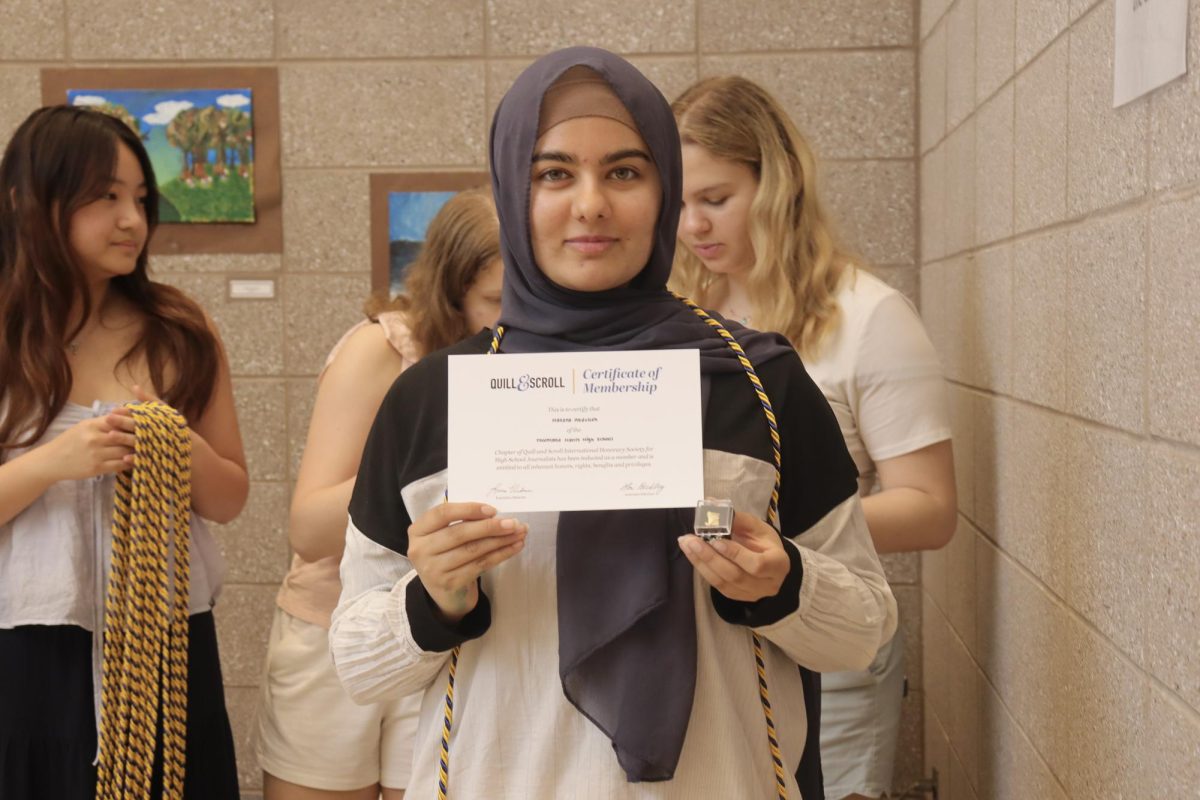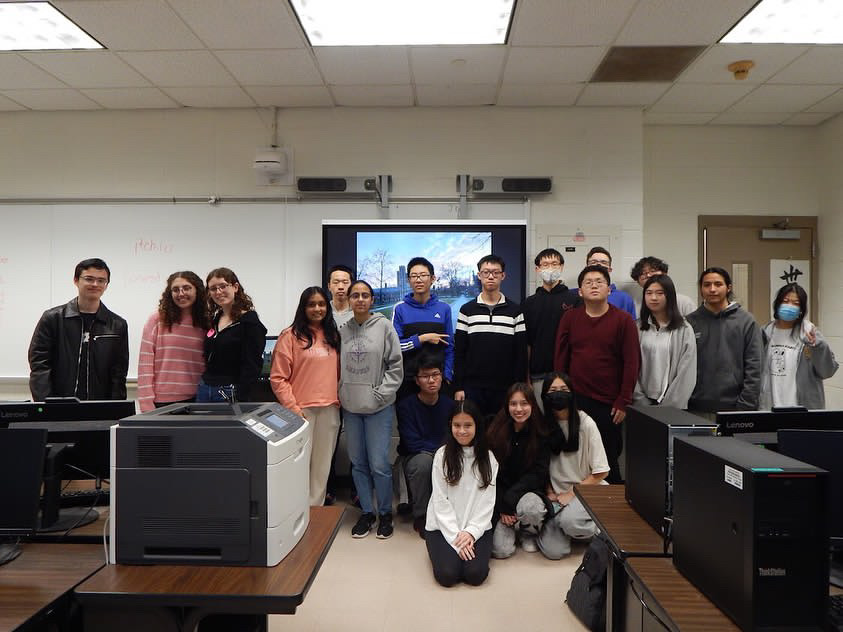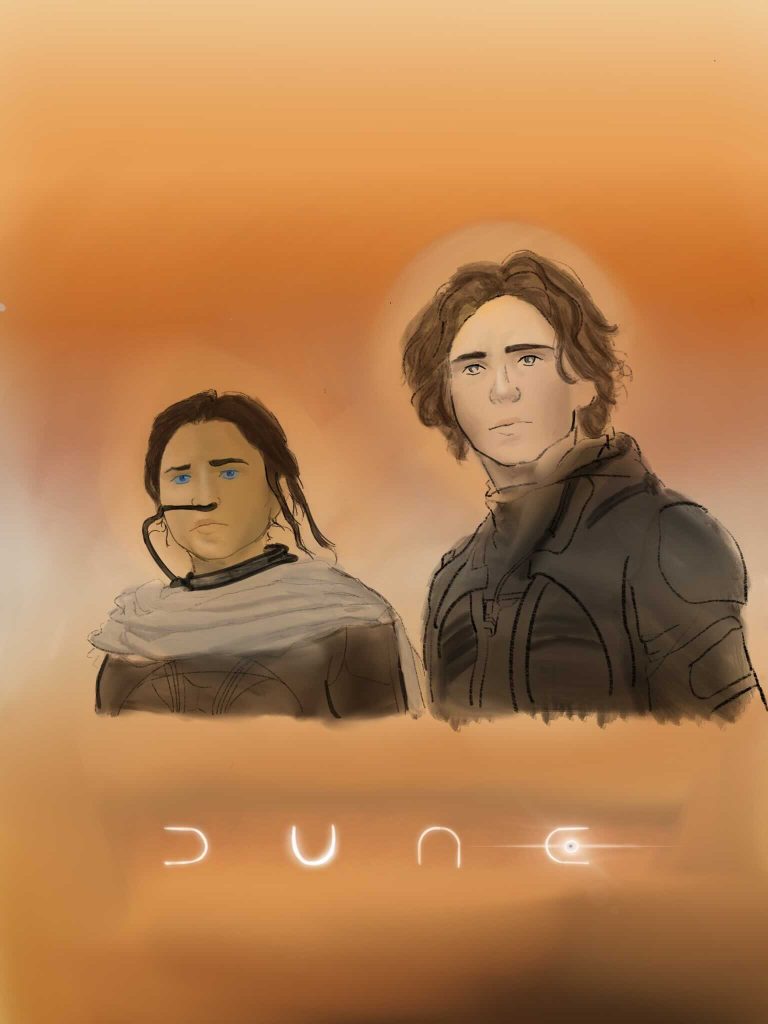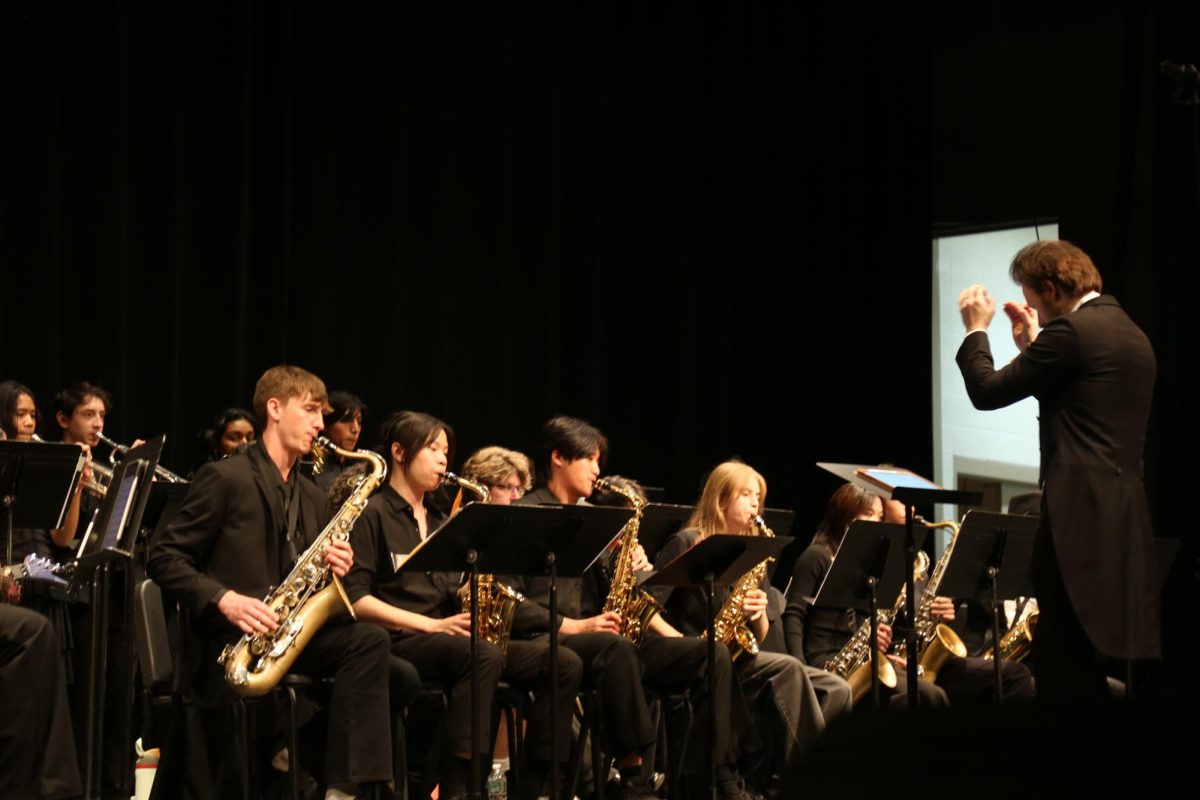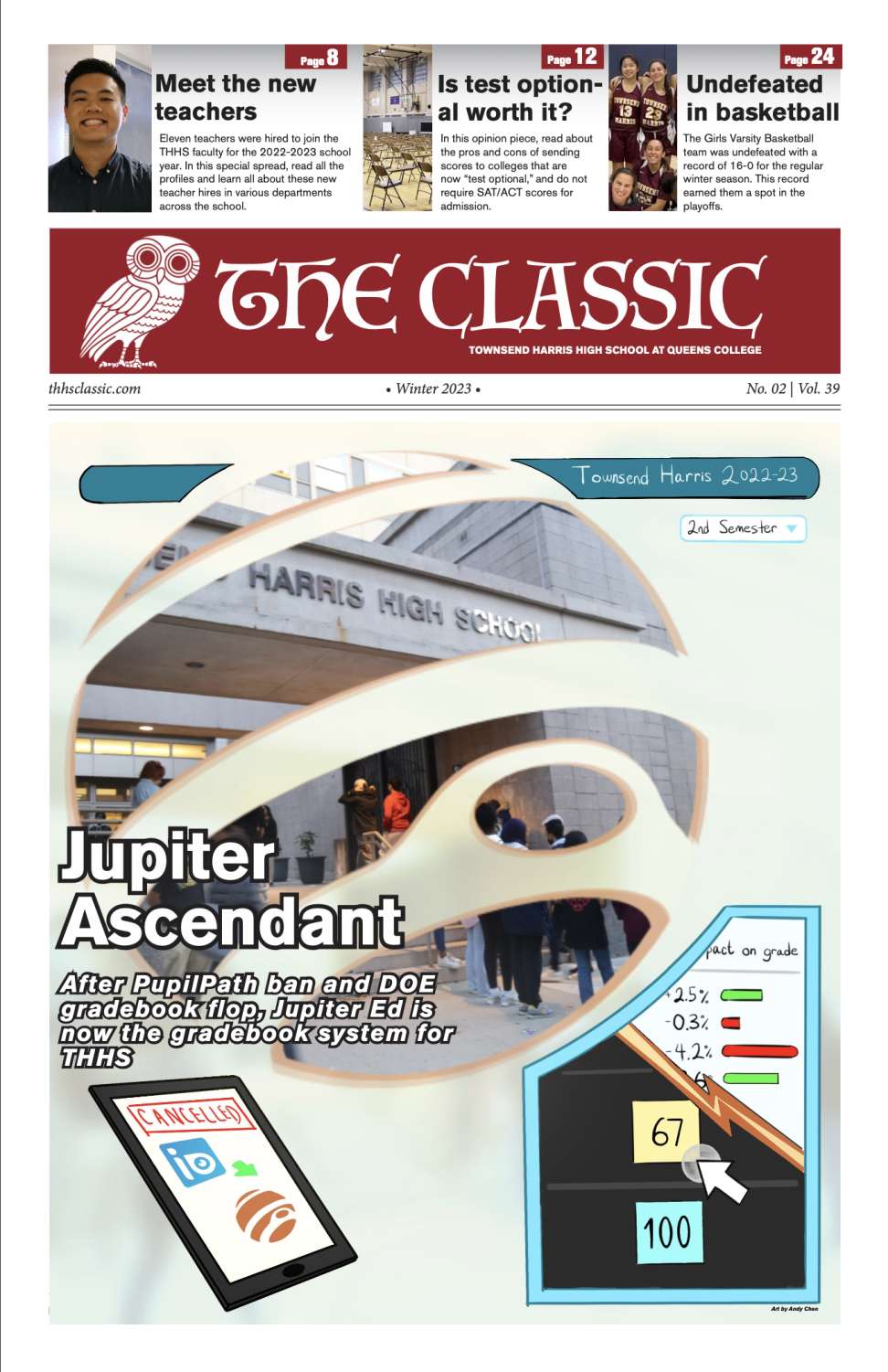
The long-awaited remake of Frank Herbert’s massive sci-fi saga, Dune (2021) directed by Denis Villeneuve is a marked improvement from the 1984 original film, but that isn’t saying much. With star-studded cast members, such as the lead, Paul Atreides (Timothée Chalamet), and his love interest, Chani (Zendaya), the film has received massive hype from not just die-hard book fans, but from an eager mainstream audience as well. However, given Dune’s heavily detailed lore and worldbuilding, it seems as if the latter group may be getting a bit more than they bargained for.
The movie has a slow pace that is somewhat frustrating at times, but it fits perfectly with the original narrative pace in the novel. Although the movie is in no rush for the audience’s attention span, the sequence of events and the escalating tension keeps viewers engaged.
The film tells the beginning of the story of Paul Atreides, son of the Duke Leto Atreides and Jessica, who is part of an elite order of politically influential nuns called the Bene Gesserit. Paul has an unusually strong psychic aptitude and has visions in his dreams that reveal his future. Thus, suspicions grew over whether he may be someone special, a lone male of their order reputed to be the messiah of the universe due to his great power. Meanwhile, the Atreides house is ordered by the emperor to take over the planet of Arrakis from their rival the Harkonens. Along with being the center of the lucrative trade of a drug called “spice,” Arrakis also has a rebelling native population, the Fremen, who want freedom for their planet. With the aim of improving the planet and its state of trade, the Atreides settle there only to be faced with disastrous consequences.
The aesthetics and cinematography are strong highlights and further prove director Denis Villeneuve’s talent for portraying detailed sci-fi worlds. The film also properly evokes elements iconic to the original series, such as the ships and the unique “voice” used to control others, while also managing to distance itself from overused sci-fi motifs by showcasing dragon-fly shaped ships and the highly detailed architecture of Arrakis.
The sound and visuals of the film are a strong point that draws attention consistently. The soundtrack with score composer Hans Zimmer, who also worked on Blade Runner 2049, delivers another eerie and otherworldly soundtrack that perfectly fits into the world of Dune. The chanting and heavy use of bass in many of the tracks also fits a theatre experience. The unabashed overuse of huge CGI aerial shots and effects, particularly in the battles, takes a bit to get used to, but ultimately fits the scale of the film. The sand worms and the body shields that the Atreides wear are the most notable details in this respect. The effects are convincing and visually engaging, but it is clear that the producers were trying to get their money’s worth with how often they’re used. The costume design is also quite good, emphasizing the real world cultures that inspired those of the novel.The uniform aesthetics of the Harkonens, with their bald heads and dark suits, was also an interesting choice that is far more tasteful than the 1984 original. They appear more creepy than laughable in this version and have much more of an intimidation factor.
The inclusion of far more actors of color in this film was also highly refreshing. This particularly goes for the Fremen and the citizens of Arrakis who are portrayed corresponding to the strong Middle-Eastern influence on this fictional world. It makes more sense that people who live in a desert climate have darker complexions rather than just looking like a pack of European peasants as in the 1984 version. However, what is interesting about Dune (2021) is that based on the novels, it seems to be a story of colonialism. It feels intentional that the noble families who exploit Arrakis are portrayed almost always as white Europeans while the Fremen and other “commoner” characters have darker skin and live nomadic lifestyles. This is demonstrated by the presence of more Northern European and Greek-sounding names such as Atreides, Harkonen, and Duncan, compared to names like Muad’Dib and Chani, which are more reminiscent of Arabic. Dune (2021) thus offers a new and more inclusive interpretation of the original franchise with a more diverse group of actors for both the noble families and the Fremen. Instead of the white male scientist who has “gone native” in effort to exploit them, we get the black female Dr. Liet-Kynes who claims stronger affiliation with the Fremen. Although this may lessen the glaring obviousness of Dune’s metaphor for imperialism, the intent is still made clear in this film.
The campiness and goofy element of the original Dune is thankfully gone, though its sillier plot elements are still preserved. The Baron Harkonen scenes are far less laughable and more agitating and unnerving, which seems to be the effect the original novel was trying to achieve. The film does not try to change the pure-evil supervillain nature of the Baron’s character, nor that of his subordinates. Paul’s brooding teenage character type and his justified anger at being involuntarily chosen as the savior of the universe also remains fitting. What did seem out of place was how Doctor Yueh (Chang Chen) spoke to Paul not in an East-Asian rooted con-lang, but just modern Chinese. It seemed like an unnecessary inclusion to begin with given that there is already a detailed con-lang (a fictional language) made for the Fremen, as well as the fact that the Atreides family is proficient in sign-language.
Dune (2021) definitely does the original book series more justice than its predecessor, but whether it is anything revolutionary is debatable. The film does a good job of maintaining core elements of the original plot, but focuses more on giving a good visual experience than anything else. It does not lead the inexperienced viewer by the hand, but is rather made for die-hard fans of the books, with a scale and social media hype making it possible to both pay off its immense budget cost and satisfy its artistic vision.
Artwork by Amelia Harrington


